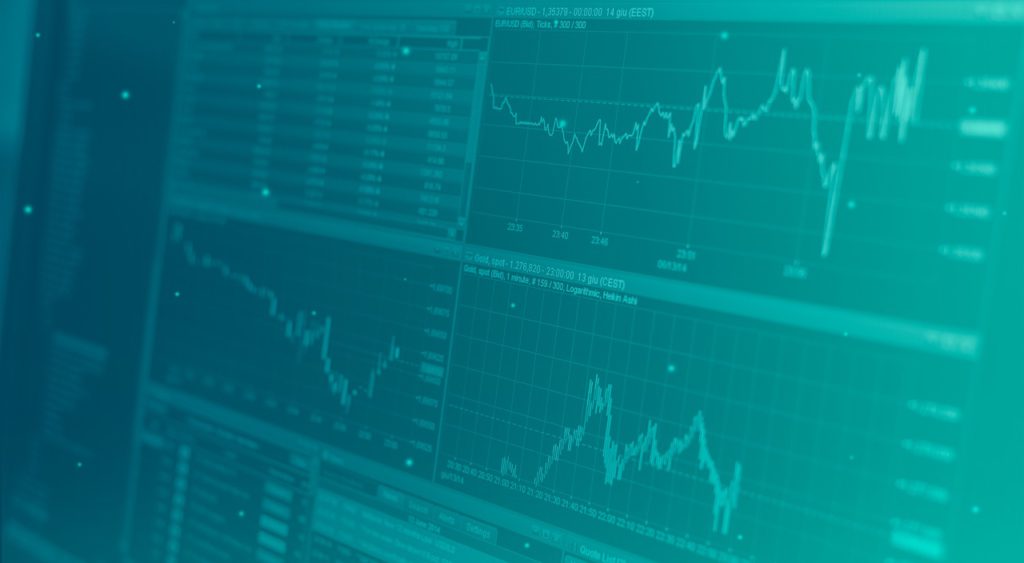
From novel technologies being invented to fight financial crime, to Anti-Money Laundering and Counter-Financing of Terrorism (AML/CFT) regulators taking actions like the Financial Action Task Force (FATF) endorsing Artificial Intelligence (AI) enhanced transaction monitoring, the Anti-Money Laundering industry has seen many highs in 2021.
However, it seems that these efforts have not made a significant impact on the amount of money being laundered. There is no doubt that much more needs to be done for us to curb financial crimes, so we must prepare ourselves for the AML regulations in the coming year. Read the top 3 AML trends in 2022 below to find out how these coming changes will affect your business.
1. Enhancing Crypto Regulations
Cryptocurrency has gained significant traction over the past few years, becoming an alternative way to move money across borders. Most governments, in order not to stifle innovation, do not ban cryptocurrency related businesses, and adopt a risk-based targeted approach in regulating the sector. Unfortunately, due to the uneven regulatory standards across jurisdiction, it attracts money launderers and other financial criminals as cryptocurrency transactions are largely anonymous. A report reveals that losses from crypto-related crime hit a whopping $14 billion in 2021. To prevent such severe losses, there will be a need to enhance crypto regulations this year.
FATF, an international policy-making and standard-setting body for AML/CFT, has stressed on the importance of continued monitoring of virtual assets and the Virtual Asset Service Provider (VASPs) sectors. Reviews on virtual assets and guidelines to Virtual Asset Service Providers have been issued for the past few years, with the support from the G20.
Foreseeably, there will likely be more of such regulations for the exchange of cryptocurrency being proposed in the coming year globally. Below are a few of the actions taken by Hong Kong, Singapore and Malaysia in combating crypto-related crimes.
Hong Kong — Introduction of a Licensing Regime for Virtual Asset Services Providers
The Financial Services and the Treasury Bureau recently proposed a few amendments to the Anti-Money Laundering and Counter-Terrorist Financing Ordinance (AMLO) to upgrade Anti-Money Laundering and Counter-Terrorist Financing (AML/CTF) regulations in Hong Kong, which includes having to apply for a licence from the Securities and Futures Commission (SFC) to operate a virtual asset exchange. This will allow the SFC to reject any suspicious operators and stop financial crimes from occurring through crypto.
Singapore — Strengthening AML/CFT Controls of Digital Payment Token Service Providers
Singapore has also made amendments to the Payment Services Act 2019 (PSA) in 2021 to now include facilitating the exchange of Digital Payment Tokens (DPTs) where service providers that do not even come into possession with the money or DPTs involved in a transaction may also now come under the regulation of The Monetary Authority of Singapore (MAS). Following that, MAS published a new infographic setting out supervisory expectations on AML/CFT controls for the DPT sector.
Malaysia — Issue AML/CFT Guideline for Digital Currencies
Furthermore, the Bank Negara Malaysia also issued a policy document entitled “Anti-Money Laundering and Counter Financing of Terrorism Policy for Digital Currencies” that was implemented on 27 February 2018. As a result, cryptocurrency exchanges must now conduct their Customer Due Diligence (CDD) and verify customer identities. This not only hinders money launderers, but also makes digital currency activities in Malaysia more transparent.
2. Using Advanced Technology
Humans are evolutionary creatures. We continuously adapt to our surroundings to keep up with the complex and dynamic world we live in. The AML/CFT industry is no different. AI, including cognitive computing, graph analytics, machine learning, cloud computing and robotic process automation, the most innovative technologies we have come up with so far, has played a pivotal role in automating processes like risk scoring, building risk portfolios, and compiling data for Customer Due Diligence or screening activities, in a much faster and more efficient way.
For example, UOB is the first Singapore bank to implement AI in both transaction monitoring and name screening, which analyses 60,000 account names monthly against global watch lists. Through implementing machine learning techniques in the various stages of transaction monitoring, the chances of a false positive risk assessment are greatly reduced. With these numerous benefits, many professional firms will definitely be implementing AI into their AML/CFT measures.
While banks and financial institutions have the resources to implement bleeding edge technologies, many of these AML screening technologies are also available to non-bank businesses. Enhancing AML screening is becoming more common and necessary. These allow non-bank businesses, like professional firms, to assess the risks of money laundering customers can possess in businesses. They can make educated choices on whether to serve a customer, preventing money laundering before it even happens.
A prime example of AML screening solutions is Ingenique Solutions’ SentroWeb, the most complete customer due diligence screening solution for AML/CFT for professional firms. Backed by Dow Jones, SentroWeb brings to you the best search engine, and the most comprehensive data you can find in the market. With their screening software, you can screen Politically Exposed Persons (PEPs), Sanctions and Watchlists, and Adverse Media in seconds. Thus, AML screening softwares will undoubtedly improve in 2022.
3. Information Sharing Beyond the Private Sector
In this globalized economy, financial criminals are no longer limited by space and time. Money launderers can coordinate their crimes from anywhere in the world, making illegal transactions through multiple financial institutions, so it is extremely difficult for financial institutions and professional firms to effectively track and apprehend perpetrators on their own. Current measures used to ensure information security have unfortunately become barriers that prevent AML/CFT information sharing within or between financial institutions, hindering their ability to identify and report potential money laundering activities.
In view of this, FATF places great emphasis on information sharing, providing its own set of guidance on private sector information sharing and standards on information sharing.
Singapore’s First Digital Information Sharing Platforms — COSMIC
MAS has recently introduced one of the first digital information sharing platforms, the Collaborative Sharing of ML/TF Information and Cases (COSMIC), to allow financial institutions within the country to warn each other about unusual activities on their customers’ accounts. Although information sharing has yet to become the norm, it is likely that there will be similar initiatives in 2022 to keep up with the volatile financial landscape.
Hong Kong Launched Anti-Money Laundering Regtech Lab — AMLab
The Hong Kong Monetary Authority (HKMA) also launched an AML RegTech Lab (AMLab) in November 2021, promoting information sharing through public-private partnership efforts as one of the key foci of AMLab. The 5 initial banks involved will experiment with network diagrams to aid them in identifying suspected money mule accounts, learn how to organize data in a traditional manner for analysis, and discover how to apply network analytics to identify money laundering risks.
Final Words
With the ever-changing financial environment and threats in crimes and terrorism, there is no one size fits all solution to money laundering. It is a problem that continues to evolve with time, so we will need to constantly review and improve our AML/CFT measures. It is paramount that we keep up with the changing AML/CFT measures so that we can effectively manage and minimize the possibility of financial crime and terrorism, keeping our communities safe and secure.
Recent Posts:
- AUSTRAC’s AML/CTF Starter Kit for Accountants and TCSPs: A Summary Guide to Compliance Readiness
- AML/CFT Case Study: Money Laundering Through Gold Bars and Trade – Vulnerabilities and Risk Mitigation for DNFBPs
- Navigating AML/CTF Compliance in Australia: A Guide for Tranche 2 Entities Under the Amendment to the AML/CTF Act Effective 2026



